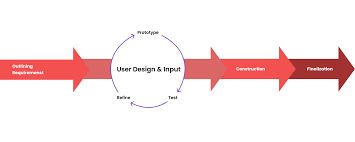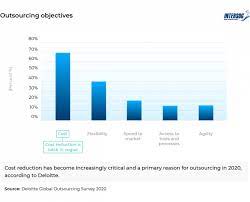Maximizing Efficiency: The Power of Programming Outsourcing
The Benefits of Programming Outsourcing
Programming outsourcing has become a popular practice for businesses looking to streamline their operations and reduce costs. By hiring external programming experts or teams to handle software development tasks, companies can focus on their core activities while benefiting from specialized skills and resources. Here are some key advantages of programming outsourcing:
Cost Savings
One of the primary reasons companies opt for programming outsourcing is cost savings. By outsourcing programming tasks to countries with lower labor costs, businesses can significantly reduce expenses associated with hiring and maintaining an in-house development team. This cost-effective approach allows companies to allocate resources more efficiently and invest in other areas of their business.
Access to Specialized Skills
Programming outsourcing provides access to a diverse pool of talented programmers with specialized skills and expertise. Companies can choose outsourcing partners based on their specific project requirements, ensuring that they have access to the right talent for the job. This access to specialized skills can lead to faster project completion times and higher-quality deliverables.
Flexibility and Scalability
Outsourcing programming tasks offers businesses flexibility and scalability in managing their projects. Companies can easily scale up or down their outsourced resources based on project demands, without the need to hire or lay off employees internally. This flexibility allows businesses to adapt quickly to changing market conditions and maintain a competitive edge.
Focus on Core Activities
By outsourcing programming tasks, companies can free up internal resources and focus on their core activities and strategic initiatives. Outsourcing allows businesses to delegate non-core functions such as software development to external experts, enabling them to concentrate on areas that drive business growth and innovation.
Risk Mitigation
Programming outsourcing can help mitigate risks associated with software development projects. Outsourcing partners often have established processes, methodologies, and quality assurance practices in place, reducing the likelihood of project delays or errors. Additionally, outsourcing providers may offer service level agreements (SLAs) that guarantee project delivery within specified timelines and quality standards.
In conclusion, programming outsourcing offers numerous benefits for businesses seeking cost-effective solutions, access to specialized skills, flexibility, risk mitigation, and the ability to focus on core activities. By partnering with reliable outsourcing providers, companies can enhance their competitiveness in today’s fast-paced digital landscape.
5 Essential Tips for Successful Programming Outsourcing
- Clearly define the scope of work and requirements before outsourcing.
- Choose a reputable and experienced outsourcing partner with a proven track record.
- Communicate effectively and regularly with the outsourcing team to ensure alignment.
- Establish clear milestones and deadlines to track progress and ensure timely delivery.
- Consider factors like cultural differences, time zones, and language barriers when selecting an outsourcing partner.
Clearly define the scope of work and requirements before outsourcing.
When considering programming outsourcing, it is crucial to clearly define the scope of work and requirements upfront. By establishing a detailed project scope, including specific deliverables, timelines, and quality expectations, businesses can ensure that both parties have a clear understanding of the project goals. This clarity helps prevent misunderstandings, delays, and potential conflicts during the outsourcing process. Clearly defining the scope of work and requirements sets a solid foundation for a successful outsourcing partnership and facilitates smooth project execution.
Choose a reputable and experienced outsourcing partner with a proven track record.
When considering programming outsourcing, it is crucial to select a reputable and experienced outsourcing partner with a proven track record. By choosing a partner with a strong reputation and extensive experience in software development, businesses can ensure reliable and high-quality results. A reputable outsourcing partner will have the expertise to handle diverse projects efficiently, meet deadlines, and deliver solutions that align with the client’s requirements. Their proven track record demonstrates their ability to consistently deliver successful outcomes, making them a trustworthy choice for companies looking to outsource programming tasks.
Communicate effectively and regularly with the outsourcing team to ensure alignment.
Effective and regular communication with the outsourcing team is crucial to ensure alignment and successful collaboration. By maintaining open lines of communication, both parties can clarify expectations, address any issues promptly, and stay informed about project progress. Clear communication helps prevent misunderstandings, promotes transparency, and fosters a strong working relationship between the company and the outsourcing team. Regular updates and feedback exchanges enable adjustments to be made swiftly, leading to improved productivity and ultimately achieving the desired outcomes of the programming outsourcing partnership.
Establish clear milestones and deadlines to track progress and ensure timely delivery.
Establishing clear milestones and deadlines is a crucial tip when it comes to programming outsourcing. By setting specific goals and timelines, both the outsourcing partner and the hiring company can track progress effectively and ensure timely delivery of the project. Clear milestones provide a roadmap for the development process, allowing for better project management and alignment of expectations between all parties involved. This practice not only helps in monitoring progress but also facilitates communication, accountability, and ultimately leads to successful project completion within the specified timeframe.
Consider factors like cultural differences, time zones, and language barriers when selecting an outsourcing partner.
When considering programming outsourcing, it is crucial to take into account factors such as cultural differences, time zones, and language barriers when choosing an outsourcing partner. Understanding and addressing these aspects can significantly impact the success of the collaboration. Cultural differences may influence communication styles and work approaches, while time zone variations can affect project timelines and coordination. Language barriers can lead to misunderstandings and inefficiencies if not managed effectively. By carefully evaluating these factors and selecting an outsourcing partner that aligns with your business needs and values, you can foster a productive and harmonious working relationship that enhances project outcomes.






